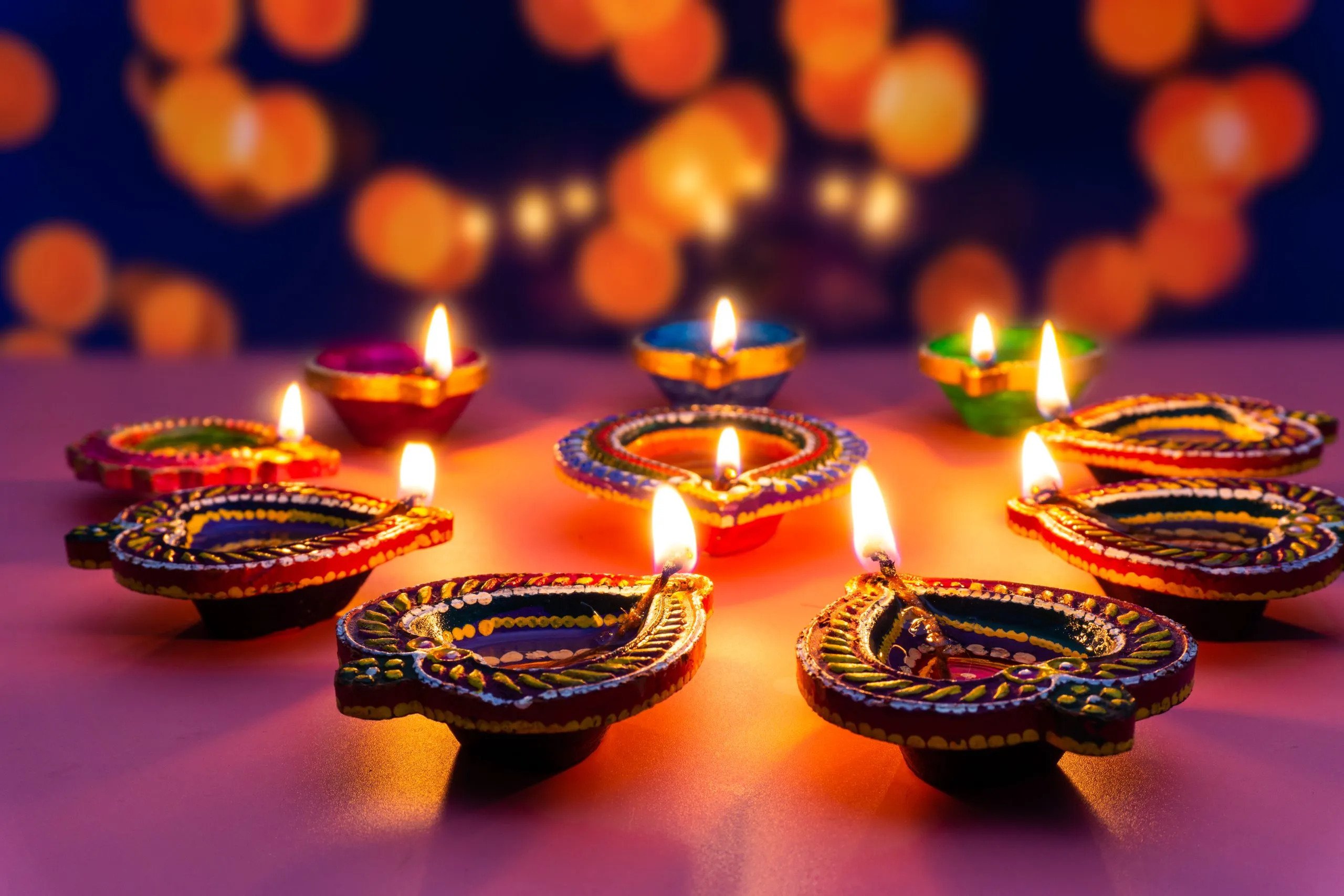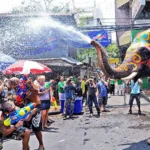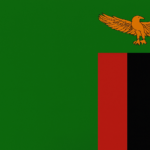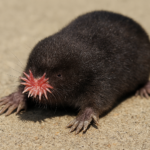
Diwali, also known as the “Festival of Lights,” is a significant celebration for Hindus, Jains, and Sikhs worldwide. It signifies the triumph of good over evil and marks the Hindu New Year. This festive occasion falls in October or November and spans five days. During Diwali, people light up their homes with diyas and candles to welcome Lakshmi, the goddess of wealth and prosperity.
The term “Diwali” has Sanskrit roots, derived from the word “Deepavali,” meaning “a row of lights.” This festival is a time of great joy, happiness, and celebration across India and other parts of the world. It is believed that Diwali is celebrated to honor Lord Rama’s return to Ayodhya after a 14-year exile. It is also celebrated as the day when Lord Krishna defeated the demon king Narakasura.
Diwali is an essential national holiday in India, Nepal, Sri Lanka, Mauritius, Guyana, Trinidad & Tobago, Myanmar, and Fiji. This occasion is an opportunity for people to celebrate with friends and family, exchange gifts, and indulge in mouth-watering sweets and delicacies. Firecrackers have traditionally been an integral part of Diwali celebrations, but in recent years, many places have banned them due to concerns about pollution and safety.
Diwali is an excellent opportunity for people to express their creativity through various arts and crafts. Rangolis, intricate designs made with colored powders or flowers, are a common sight in homes during this festival. People also decorate their homes with lights and lanterns, adding a vibrant and colorful touch to the celebrations. Diwali is also a time to share delicious food with friends and family.
Diwali is one of the most significant festivals in Hinduism and is celebrated in different ways across India. In some parts of the country, people celebrate Diwali as the day when Lord Rama defeated the demon king Ravana, and in other regions, it is celebrated as the birthday of Lord Krishna. During Diwali, people worship Goddess Lakshmi and Lord Ganesha, who are believed to bring wealth, prosperity, and good luck.
During Diwali, people buy new clothes and jewelry, and many businesses offer huge discounts and sales. This festival is an excellent opportunity for people to enjoy delicious food and sweets, including gulab jamun, jalebi, rasgulla, and laddoos. Many people also decorate their homes with fresh flowers, colorful rangolis, and twinkling lights to welcome guests and create a festive atmosphere.
Diwali is a time when families come together to share love and happiness. In many parts of India, people light firecrackers to drive away evil spirits and negative energy. During this festival, people exchange gifts and sweets with friends and family. Diwali is also an opportunity for people to reflect on the year gone by and set new goals and aspirations for the year ahead.
In recent years, people have started celebrating eco-friendly Diwalis by using sustainable materials for decorations and avoiding firecrackers. This approach not only reduces pollution but also promotes a healthier and more sustainable way of life. Diwali is a time to come together as a community and celebrate the joy of life and the triumph of good over evil.
The five days of Diwali have different significance and are celebrated in unique ways. The first day, called Dhanteras, is dedicated to the worship of wealth and prosperity. The second day, Naraka Chaturdashi, commemorates the defeat of the demon king Narakasura by Lord Krishna. The third day, Diwali, is the main day of the festival and marks the triumph of good over evil. The fourth day, Govardhan Puja, is when people worship Lord Krishna and his love for cows. The fifth day, Bhai Dooj, celebrates the bond of love between brothers and sisters.
One of the most popular traditions during Diwali is the lighting of diyas and candles. The idea behind this is to dispel darkness and usher in light, symbolizing the victory of good over evil. Many people also light fireworks during this time, creating a stunning display of light and color in the night sky. However, there has been growing awareness in recent years about the harmful effects of fireworks on the environment and people’s health.
Diwali is not only celebrated in India but also in other parts of the world where there is a significant Hindu or Sikh population. For example, in Nepal, Diwali is known as Tihar and is celebrated for five days with similar traditions and customs. In Malaysia and Singapore, Diwali is a public holiday, and people celebrate it with great fervor and enthusiasm.
One of the most exciting aspects of Diwali is the food. Different regions of India have their unique Diwali delicacies, ranging from savory snacks like chakli and namak pare to sweet treats like gulab jamun and rasgulla. Many people also prepare traditional meals, such as biryani and puri sabzi, to share with family and friends. The sweets and snacks are often exchanged as gifts during Diwali.
Diwali is a time for reflection and introspection, and many people use this opportunity to start new beginnings. This is why many people undertake new business ventures or investments during Diwali, believing that it will bring them prosperity and success. It is also a time to forgive and forget past grievances and come together in peace and harmony.
During Diwali, people often decorate their homes with flowers, rangolis, and lights to create a festive and welcoming atmosphere. Some people also use this opportunity to do spring cleaning and declutter their homes, getting rid of unnecessary items and creating a fresh start. This tradition symbolizes the removal of negativity and the embracing of positivity in life.
Diwali is a time to spread joy and happiness, and many people volunteer and give back to the community during this time. Some people distribute sweets and gifts to the less fortunate, while others donate to charities and organizations that help those in need. This spirit of giving and compassion is an integral part of Diwali and reflects the values of love and kindness.
Diwali is also a time for entertainment and fun. Many people watch Bollywood movies and attend cultural events during this festival. In some parts of India, people organize Ramlila performances, which are dramatic reenactments of the story of Lord Rama. These performances are often accompanied by music and dance and are a highlight of the festival.
Diwali is not just a Hindu festival, but it is also celebrated by Jains and Sikhs. For Jains, Diwali marks the attainment of Nirvana by Lord Mahavira, the founder of Jainism. For Sikhs, Diwali marks the release of Guru Hargobind, the sixth Sikh guru, from imprisonment by the Mughal Emperor Jahangir. Sikh celebrations of Diwali often involve lighting lamps and offering prayers at the Golden Temple in Amritsar.
In some parts of India, Diwali is also associated with the worship of Goddess Lakshmi, who is believed to bring wealth and prosperity. Many people perform Lakshmi puja, a ritual that involves offering prayers, flowers, and sweets to the goddess. It is believed that performing this puja will bring good fortune and abundance.
The day after Diwali is known as Annakut, which means a mountain of food. On this day, people prepare a large feast and offer it to Lord Krishna, who is believed to have a great appetite. This feast is then shared with family and friends, symbolizing the spirit of sharing and togetherness.
In some parts of India, it is believed that Goddess Kali is worshipped on the day of Diwali. This is especially true in eastern India, where Kali Puja is a major festival. Kali is associated with destruction, but also with the transformation and renewal that follows.
Diwali is a time for family reunions and gatherings, and many people travel long distances to be with their loved ones during this festival. It is also a time to exchange gifts and sweets, strengthening the bonds of love and affection.
The festival of Diwali has a deep spiritual significance and is believed to signify the triumph of good over evil, light over darkness, and knowledge over ignorance. It is a reminder that no matter how dark things may seem, there is always hope for a brighter tomorrow.
The celebration of Diwali dates back thousands of years, and its roots can be traced to ancient Hindu scriptures such as the Ramayana and the Puranas. These stories and legends are an integral part of the festival and are often recited and retold during this time.
In recent years, there has been growing awareness about the environmental impact of Diwali celebrations, particularly the use of fireworks. Many people are now opting for eco-friendly celebrations, using LED lights and avoiding the use of fireworks to reduce air and noise pollution. This reflects a growing consciousness about the need to balance tradition with sustainability.









